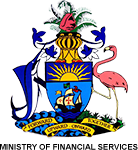The BCCEC fully supports the nation’s accession process
The Bahamas Chamber of Commerce and Employers Confederation (BCCEC) fully supports the nation’s accession process to the World Trade Organization (WTO) and views membership as necessary to advance the nation’s economic standing. In preparing for WTO accession, it is critical that The Bahamas improves on the essential ease of doing business fundamentals that will better equip local businesses to compete in the national and international arenas.
The WTO, established in 1995, is headquartered in Geneva, Switzerland and as of 2016, had 164 countries making up its membership. It is the only global international organization dealing with the rules of trade between nations and is guided by agreements, negotiated and signed by the majority of the world’s trading nations and ratified in their parliaments. The goal of the WTO is to help producers of goods and services, exporters, and importers to conduct their business at a global level.
Remaining outside the WTO places the Bahamian economy at greater risk
The Bahamas first applied for full WTO membership in 2001 but has failed to complete its negotiations. Remaining outside of the World Trade Organization places the Bahamian economy at greater risk in that member countries enjoy trade access, transparency, safety and security, and concessions deemed essential to the member states’ economy. Countries that are not WTO members may realize that access to export markets is limited or uncompetitive. Moreover, a non-member country may fall victim to food safety or intellectual property concerns. It is important to note that two-thirds of the WTO members are developing countries who play an important and active role in the Organization as they seek to derive economic benefits from their participation. Membership will allow The Bahamas to have a voice and seat at the table, without which we cannot have an impact on important decisions that will ultimately affect us.
The Bahamas’ membership will send a strong signal to our regional partners and other nations of the global community that we are actively engaged in global trade, that we fully support the rules-based system of trading and that we are ready for opportunities that will foster economic growth for all Bahamians.
WTO membership will help to lower the cost of living
The BCCEC notes that WTO membership will result in the Bahamas providing concessions to appropriate and qualifying local industries while also lowering customs duties on imports. This is a considerable benefit for an economy that is reliant on foreign imports and seeks to develop local sectors which drive broad economic value. Reduced rates on imports will assist producers who import raw materials and inputs. This has the ability to expand the range of final products and services that are made by domestic producers, and it increases the range of technologies they can use as well. Additionally, this will lower the cost of consumer products and, therefore, lower the cost of living and the cost of doing business for the private sector.
The BCCEC recognizes that an isolated reduction in import taxes will result in a significant revenue shortfall for the Government. The BCCEC appreciates that the Government must seek alternative income but believes that the introduction of any new tax or the increase in existing taxes must be carefully evaluated and include active public consultation.
Key sectors of the economy must be protected
Further, the BCCEC recognizes that key sectors of the economy that contribute significantly to the overall growth of the nation’s economy must be protected. It is important to recognize that regardless of how appropriate, concessions and taxes intended to discourage imports are in fact subsidies provided by the Bahamian consumer and business. The BCCEC, for that reason, must ensure that all concessions and import taxes designed to protect a local sector results in greater economic growth. The BCCEC, therefore, supports a WTO accession strategy that will identify, through public consultations and verifiable research, current and future sectors of the economy that are deemed crucial to the nation’s long-term growth and stability so that they remain protected for generations to come.
Active negotiations will allow us to retain flexibility
The BCCEC acknowledges that membership in the WTO alone will not accrue benefits but that an environment which allows businesses to operate competitively must also exist. We also know that there has to be a strong WTO negotiating strategy that balances the needs of the various sectors of the economy in an effort to lessen any negative consequences that WTO membership may pose. Active negotiations will allow us to retain ample flexibility to develop appropriate policies to support and protect various industries as we see fit.
There will be an open, considered and consultative accession process
The BCCEC will engage its membership, the private sector business community and the public in a series of workshops and seminars on the WTO in collaboration with the Bahamas Trade Commission in order to facilitate an open and considered accession process. Independent research and analysis will also be conducted to look at the potential impact of accession on various sectors of the economy. The BCCEC encourages the private sector and the public to actively participate in the consultation process so that their voices are heard and their views can be incorporated into the final agreement.
WTO accession does not mean the indiscriminate opening of our borders to foreign participation, rather a deliberate and intentional positioning of The Bahamas to take advantage of global trade opportunities. The level of market openness to be achieved is what is ultimately negotiated with our trading partners through the accession process. If market openness beyond a certain point would damage business communities’ competitive position, the negotiators need to be properly informed so that this can be taken into consideration and expressed at the negotiating table. In the WTO accession process, we get what we negotiate.


